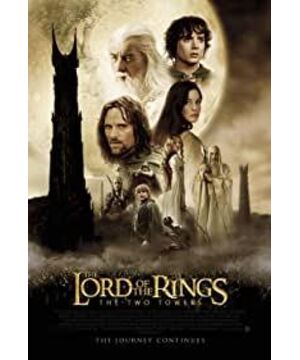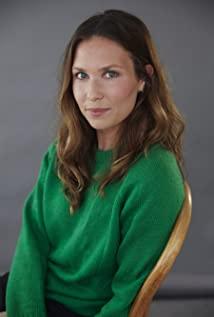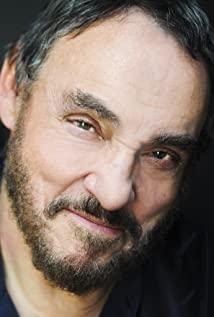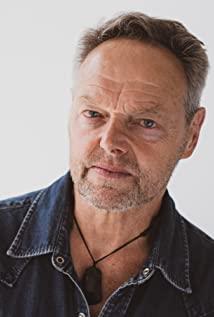Tolkien's original work was originally one, but when the work was published, there was a restriction that no one could think of now: the paper was too expensive. The editor felt that readers might not be able to afford such a thick book, so "The Lord of the Rings" was reluctantly broken into a trilogy. When Peter Jackson (hereinafter referred to as PJ) was about to start filming, he had been involved with the film company for a long time about making a few films. Of course, the most reasonable decision was to stay true to the original and make three films.
In the original trilogy, the most difficult one to shoot is probably the second one. Because Grandpa Tolkien is not a professional writer (it can be said that the "Lord of the Rings" series is a by-product of him as a language lover), in "The Two Towers", he made a decision that the readers could hardly bear: Split into two halves, the first half does not have any stories about Frodo and Sam, and the second half describes them all. Of course, PJ can’t shoot like that. After changing the whole book into a two-line cross narrative, he also made some tricks, so the second part of the movie "Lord of the Rings" trilogy, in my own eyes, is better than the original The artistry is lost.
After watching the Two Towers in the theater today, I was most impressed by the sound effects. Howard Shore’s original soundtrack for the trilogy is the pinnacle of contemporary film soundtracks. The first one has a light and lively Shire's Theme, and the third one has A storm is coming before the war, but my favorite is the second theme song The riders of Rohan. Several ascending scales are solemn and somewhat A sense of homesickness and a bleak melody runs through the play for three hours. Stringed instruments and brass are presented one after the other, with the ups and downs of the plot inevitably emotional.
In my opinion, there are two biggest changes to PJ in the plot. One is to add more kindness and principles to Gollum, and the second is the blackening of Faramir.
The first change makes Gollum's behavior when Bilbo picks up the Lord of the Rings in The Hobbit more consistent with it in The Lord of the Rings. In Tolkien's book, Gollum takes Frodo&Sam to Shelob, the giant spider spirit, from beginning to end, hoping to eat them so that he can regain the Lord of the Rings. In the book, it is considered a heinous villain, but this conflicts with the Gollum that Bilbo encountered. At that time, it had 10,000 reasons to eat Bilbo, but chose to keep his promise, but did not guess Bilbo (it is already a foul) After his riddle, he let him go, so that he himself lost the most important Precious in his life. In the play, Gollum performed a wonderful two-person fight, and successfully expelled half of the evil, while retaining the goodness. Smeagle. Although the evil personality finally returned due to a betrayal in a misunderstanding, it decided to take them to Shelob at the end of the whole play, so that it was consistent with the important plot in the book.
Faramir's blackening and re-sublimation is another review of the consistency of the characters in the book by PJ. Even the kind incarnation Gandalf and the strongest goddess Galadriel of the forest can't resist the Lord of the Rings. Why can a minor Gondor regent second son be upright and have no secular desire for the Lord of the Rings. This really didn't make sense, so the PJ crew changed this one (the first book also had Tom Bombadil, who was able to hold the Lord of the Rings and was not moved by his hands, but was also removed by the PJ crew), Like his brother Boromir, Faramir believed that the Lord of the Rings would help Gondor resist Mordor and help humanity avoid the disaster of destruction, so he escorted the two Hobbits back. Then on the way back, the spirit fell from the sky, and he realized the great responsibility Frodo had on his shoulders (Galadriel said, he even knew he was gone forever), and risked being executed by his father and let the Hobbit go. So my favorite passage in the original book that Samwise the brave said when he was on his way to rest was placed after the fierce battle.
"Mr. Frodo, the brave things in the old legends and songs—the adventures, I always call them—I used to think that those adventures were the great characters in the story who went out to find them. It’s because they want to take risks, because life is a bit boring, and adventure is exciting, you can say, it’s like a kind of entertainment. But the stories that really matter, or the legends that really make you remember, are It’s not like that. The characters in it usually seem to just fall into the story—you would say that their way can only go that way. But I think they are just like us and have had many opportunities to turn back, but they don’t. . And if they turn their heads, then we won’t know, because then they will be forgotten by people. The stories we hear are those who insist on going on-I have to say, not all have a good ending , At least it’s not a good ending for the people in the story but not outside the story. You know, for example, when you go home and find that everything is fine."
These are the words from the original book, with a little change in the movie:
Sam said: "These people can turn back many times, but they keep going because they have faith in their hearts." Frodo asked tearfully what his beliefs, and Sam replied: I believe that this world is still beautiful and kind, and worthy of our protection.
Tolkien's original text is more fatalistic, like Tolstoy's view of history: people cannot choose in the current environment, and most of them are squeezed forward. PJ's adaptation is more heroic: they chose not to look back, and they have a great desire in their hearts. I like the original work better here, but after PJ has made changes, it is indeed more suitable to be presented to the audience in front of the screen.
View more about The Lord of the Rings: The Two Towers reviews











